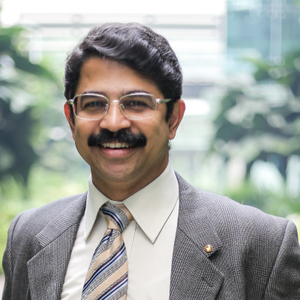Event Details
Registration is still available.
Renewables are pivotal in tropical climates like Singapore and Southeast Asia for enhancing energy security, mitigating climate change impacts, and fostering sustainable development. By adopting clean energy solutions, these nations demonstrate leadership in transitioning toward a greener and more prosperous future, setting an example for global sustainability efforts. Renewable energy sources, such as solar, wind, tidal, geothermal, and ocean energy systems, hold immense importance in tropical climates, particularly for nations like Singapore and Southeast Asia. Their significance lies in their capacity to bolster energy security, facilitate decarbonization, and advance clean energy systems, making them vital for the region's sustainable development.
Tropical regions, characterized by high energy demands for cooling and air conditioning, benefit greatly from renewables. Solar energy, in particular, is abundant throughout the year, providing a reliable, locally available energy source. By reducing dependence on imported fossil fuels, these nations can enhance energy security, reducing vulnerability to global energy market fluctuations and supply disruptions.
Tropical areas are often susceptible to the adverse effects of climate change, such as rising temperatures and sea levels. Decarbonizing the energy sector is paramount for mitigating these impacts. Renewables are inherently clean, emitting minimal to no greenhouse gases. By transitioning to these sources, Singapore and Southeast Asian countries can substantially reduce their carbon emissions, aligning with global climate goals and safeguarding their environments. Thus countries are deciding to import clean energy through either green hydrogen or green electrons from neighbouring countries.
This course aims how renewables in tropical climates, such as Singapore and Southeast Asia, would offer attendees a comprehensive understanding of clean energy technologies, their basic principles, equipment design and implementation, and their role in enhancing energy security and decarbonization. Attendees would gain the knowledge and skills needed to drive sustainable energy initiatives, contribute to regional environmental goals, and access product development and implementation opportunities in the rapidly growing renewable energy sector.
Course Objective
Upon completion of this course, the participants should be able to develop good understanding of:
- Working principles of renewable energy technologies, including solar, wind, tidal, geothermal, and ocean energy systems.
- Resource assessment of the renewables at a site.
- Device sizing as per the resource assessment.
- Basic techno-economics of renewable adoption.
- Propose & manage clean energy projects effectively.
Course Outline
Day 1:
a) We will explore the various prominent sources of renewable energy.
b) An in-depth examination of onshore renewable energy sources will be conducted.
c) The fundamentals of solar energy will be covered, providing a basic understanding.
d) Wind energy fundamentals will be discussed to give insights into this renewable energy source.
e) Introduction to bioenergy and geothermal energy will be provided during this session.
f) Case studies focusing on onshore renewables will be presented for analysis.
g) The role of energy storage within renewable energy systems will be discussed to understand its significance.
Day 2:
a) Introduction to tidal, wave, and OTEC (Ocean Thermal Energy Conversion) energy systems will be provided.
b) Technical aspects of ocean energy systems will be examined in detail.
c) The course will cover grid integration methods for incorporating renewable energy sources into existing energy systems.
d) Technological innovations such as floating solar and wind turbine concepts and future trends in hybrid systems will be explored.
e) Resource assessment and site selection processes will be discussed to ensure effective project development.
f) Technical topics related to project development will be addressed on the second day of the course.
Throughout both days, there will be opportunities for technical discussions, questions, and interactions among participants, providing a comprehensive understanding of renewable energy technologies in tropical climates.



